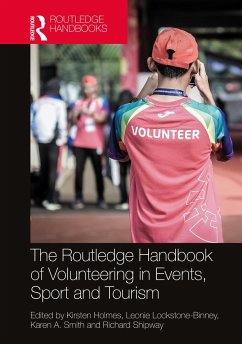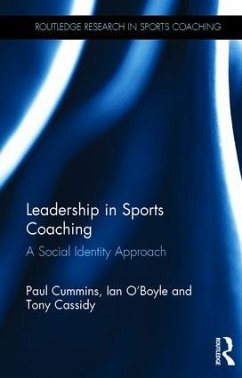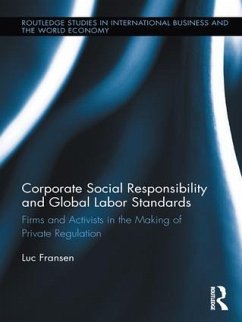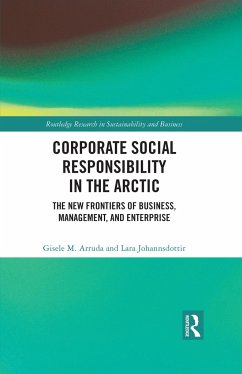
Routledge Handbook of Sport and Corporate Social Responsibility

PAYBACK Punkte
42 °P sammeln!
As the role of sport in society becomes ever more prominent and as sports organisations become increasingly influential members of the global community, so it has become more important than ever for sport to consider its wider social responsibilities. The Routledge Handbook of Sport and Corporate Social Responsibility is the first book to offer a comprehensive survey of theories and concepts of CSR as applied to sport, and the social, ethical and environmental aspects of sport business and management. It offers an overview of perspectives and approaches to CSR in sport, examines the unique fea...
As the role of sport in society becomes ever more prominent and as sports organisations become increasingly influential members of the global community, so it has become more important than ever for sport to consider its wider social responsibilities. The Routledge Handbook of Sport and Corporate Social Responsibility is the first book to offer a comprehensive survey of theories and concepts of CSR as applied to sport, and the social, ethical and environmental aspects of sport business and management. It offers an overview of perspectives and approaches to CSR in sport, examines the unique features of the sport industry in relation to CSR, explores the tools, models, common pitfalls and examples of best practice on which managers can draw, and discusses how CSR and corporate citizenship can be integrated into the sport management curriculum. The book covers every key issue and functional area, including implementation, strategic benefits, communication and corporate image, stakeholder engagement, and the measurement and evaluation of CSR policies and practices, and includes detailed international case studies, from the NBA and the Olympic Games to Japanese soccer. The Routledge Handbook of Sport and Corporate Social Responsibility is important reading for any student, researcher, manager or policy maker with an interest in sport business, management, ethics or development.














